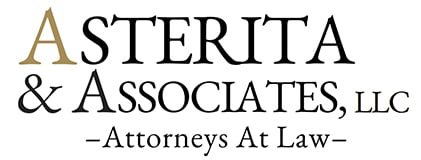Plan For The Future Today
Ensuring that you are able to live in your own home, providing for your health care needs, maintaining your lifestyle in retirement, ensuring a family business passes to your heirs and providing care for minor children or children with special needs are just some examples of why having a last will and testament is so important. Proper estate planning is a sure way of maintaining your dignity and the dignity of your loved ones. This guide seeks to answer the question: “Do I need a will?” It briefly describes what a will may include, and what happens if you were to pass away die without one. It also goes on to describe several other tools, including powers of attorney, power of attorney for health care (health care proxies) and advanced directives for health care (living wills). As you read through its contents, please contact us with any questions you may have.
Do I Need a Will?
For most everyone, the answer is yes. If you should pass away without a will, your assets will be disposed of based on the intestate laws of the state in which you live. Intestacy means that your control of your assets are determined by law under the direction of a Court, usually a Surrogate’s Court. While judges are generally fair, each state provides very strong presumptions which a court must enforce and which presumptions may have nothing, or little, to do with your actual wishes. The more comprehensive a will is, and whether or not it is correctly and clearly drafted and executed, can determine whether or not your actual wishes are implemented following your death. Amongst other things, a will can contain wishes concerning how your remains will be handled after death, and the appointment of an executor and successors that you choose to handle your estate. Your will can also appoint trustees to administer trusts that your will may create specifically to handle the inheritances for your family, minor children until ty reach adulthood or certain ages, and the special needs of a loved one with disability. A will may even contain provisions to minimize state and/or federal estate taxes.
Getting Started With A Will
Before you draft your own will or seek an attorney’s assistance, you should gather all the information you can about assets you now own, that you now have control over, that you share ownership and control over with others, and that you might soon own or control in the future. Often, you may not be sure about an asset or its control, so make a note of these assets anyway. Assets often are real estate, personal property (such as furniture, cars, bank accounts, certificates of deposit, business equipment, corporate assets, and other tangible things), stocks, bonds, insurance policies, and cash. Control means that you have some say in how those assets are used. Assets soon to be owned or controlled usually include inheritances, marriage gifts, and business revenue. Assets also include pensions, rights to buy out business interests, and options to buy or sell anything. All of this information will be helpful when considering how your will should be drafted.
Do I Need An Attorney?
While it is not required that you use an attorney to draft your will, it is highly recommended, especially for more complicated estates or when there are minor children or family members with disabilities involved. When choosing an attorney, you should select one who is experienced in the areas of estate planning, estate taxes, trusts, probate and administration. Bring all the documentation you assembled to the attorney and expect to answer questions as to what you really want to happen to your assets when you die or become incapacitated.
A will and the other estate planning tools discussed in this guide can help provide you with peace of mind that your affairs will be handled in accordance with your wishes, and not the wishes of third parties or a judge whom you may have never met.
These instruments are relatively inexpensive if they are professionally drafted and they are absolutely priceless if needed. Proper estate planning can help you and your family avoid long, drawn-out legal battles over your estate and ensure the implementation of your personal wishes concerning a variety of factors, from your health care to the selection of guardians for minor children, even to caring for children with special needs.
Having these documents for use is vital should you no longer be able to “speak” to your own needs or wishes and are otherwise forced to rely on others who may or may not have your best interests in mind. With the complexity of today’s legal environment governing these matters, advance planning is now more important than ever and is best handled by experienced attorneys.
Power Of Attorney
A power of attorney is a signed document that confers decision making authority unto another person who can act on your behalf for non-medical related matters. This instrument can be effective from the moment you sign it, or can “spring” into effect to become effective in the event that you are too sick, disabled or otherwise unable to make decisions on your own. They are very powerful instruments and should be given only to those individuals you trust most.
Power Of Attorney For Health Care (Health Care Proxy)
Powers of attorney for health care or health care proxies allow you to appoint a legal agent to make health care decisions for you in the event of your incapacity and provides such agents the ability to have access to your medical records. An ordinary power of attorney does not include this type of authority. Powers of attorney for health care & health care proxies are incredibly important because unfortunate emergencies do occur, and the person to whom a treating physician may turn to in an emergency may not be the person you want to make your medical decisions for you or to have access to your confidential medical records.
Advance Directive For Health Care (Living Will)
An advance directive for health care is a document that you can use to make known your wishes regarding life-prolonging medical treatment in the event of the occurrence of certain medical conditions where there is little or no prospect for meaningful life, such as coma with no brain activity, and similar circumstances. It informs your health care providers and your family about your desire to receive or withhold medical treatment under such circumstances. Your treating physicians must implement such wishes rather than follow instructions from any third party. An advance directive for health care or living will supersedes instruction from any third party, and your health care agent under a power of attorney for health care or living will is also bound by your wishes expressed in this instrument.
Trusts
A trust can be a very valuable tool for a variety of purposes, and there are many different kinds of trusts that can be tailored to your needs. For example, a trust can be incorporated into your estate plan to pass your assets to your heirs during your lifetime to avoid federal and state estate tax liability upon death, to preserve generational wealth, protect or ensure that you can reside in a family home, protect your assets from creditors, qualify you for Medicaid benefits and nursing home care, and even provide income to a disabled person or child with special needs. Trust planning can be very complex and is best handled by attorneys experienced in their preparation and implementation.

